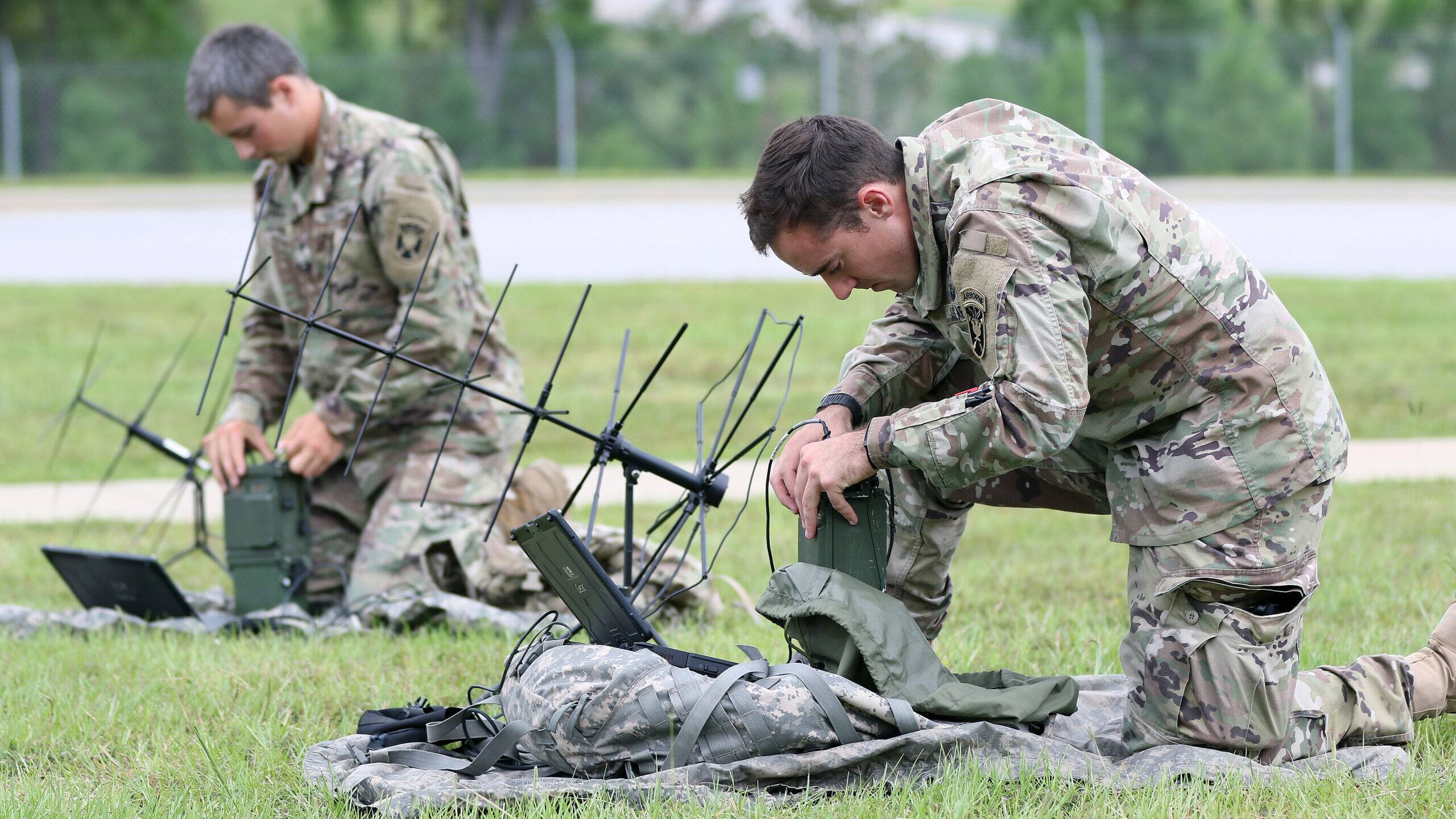ANDREW EVERSDEN

SMD 2022 — For several months, the US Army has quietly been experimenting with how to link its Special Operations Command, its Space and Missile Defense Command and its Cyber Command more closely on the battlefield, under a new “triad” concept.
The aim: to better integrate each command’s capabilities to stitch together more complex and effective battlefield options in a world where adversaries can operate in multiple domains at once.
The commanding generals of the three organizations revealed the concept for the first time today at the Space and Missile Defense Symposium, saying the origin of the idea was born in part out of success in the counter-terrorism fight, particularly against the Islamic State.
“We have examples in the counter-ISIS fight of combining lethal and non-lethal effects for a much larger holistic effect that I would say had a larger impact than anyone predicted prior to us truly synchronizing our efforts for having an effect on the adversary there,” said Lt. Gen Jonathan Braga, commander of US Army Special Operations Command.
Operations included lethal options in the physical world paired with non-lethal options, such as information warfare or cyber. An example would be “countering message and then taking away the ability to even deliver a message, provided through a holistic combination of cyber and SOF (special operations forces),” Braga said.
But as 20 years of war in the Middle East come to a close, the military is pivoting to more capable adversaries in China and Russia who are far more sophisticated than terrorist groups. Braga said that the nation-state threat brings in more opportunities to rely on space capabilities, providing what he called more “surface contact area.”
“It provides more opportunity to obviously layer in the capabilities from space,” Braga said. “It just opens up more opportunities for the synergistic effect of the three different legs of the triad.”
The organizations have been experimenting together on the concept for the last several months. Lt. Gen. Karbler, commander of Army Space and Missile Defense Command, told reporters that Project Convergence, the Army’s annual sensor-to-shooter test event, will include some triad use cases, but didn’t go into specifics. SMDC, he said, will provide space capabilities that would integrate special operators and cyberspace.
“That’s the beauty of Project Convergence is it’s an opportunity to experiment with these capabilities and find out what works best for us,” Karbler said.
Over the next 12 months, the generals said that they are looking for more experimentation venues, as well as operational opportunities. Karbler added that the important work in the short-term is educating combatant commanders that this Army SOF-Space-Cyber triad exists so they know they have integrated battlefield options, instead of a single, stovepiped solution.
“Education is a big part of it,” Karbler said. “Then, putting our money where our mouth is…showing up at exercises and making sure that the value-added of what the triad brings is recognized.”
No comments:
Post a Comment